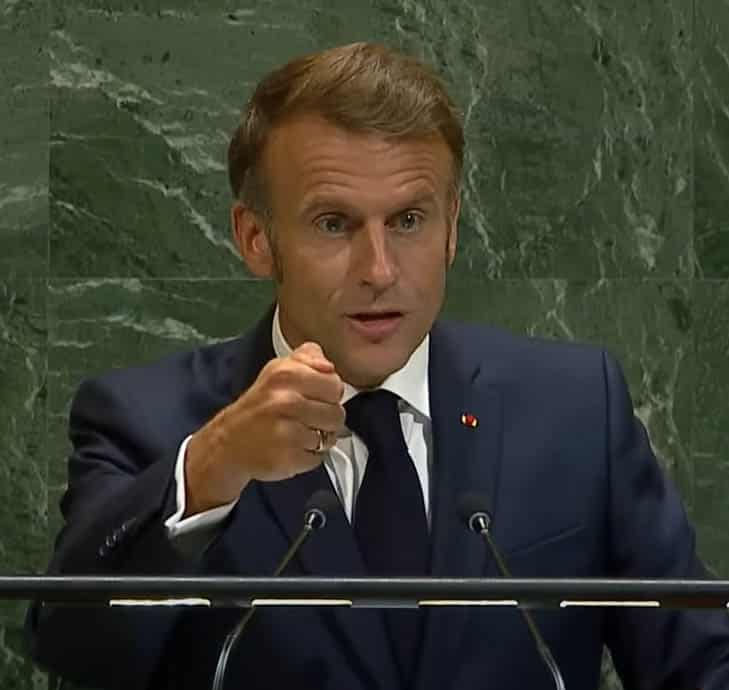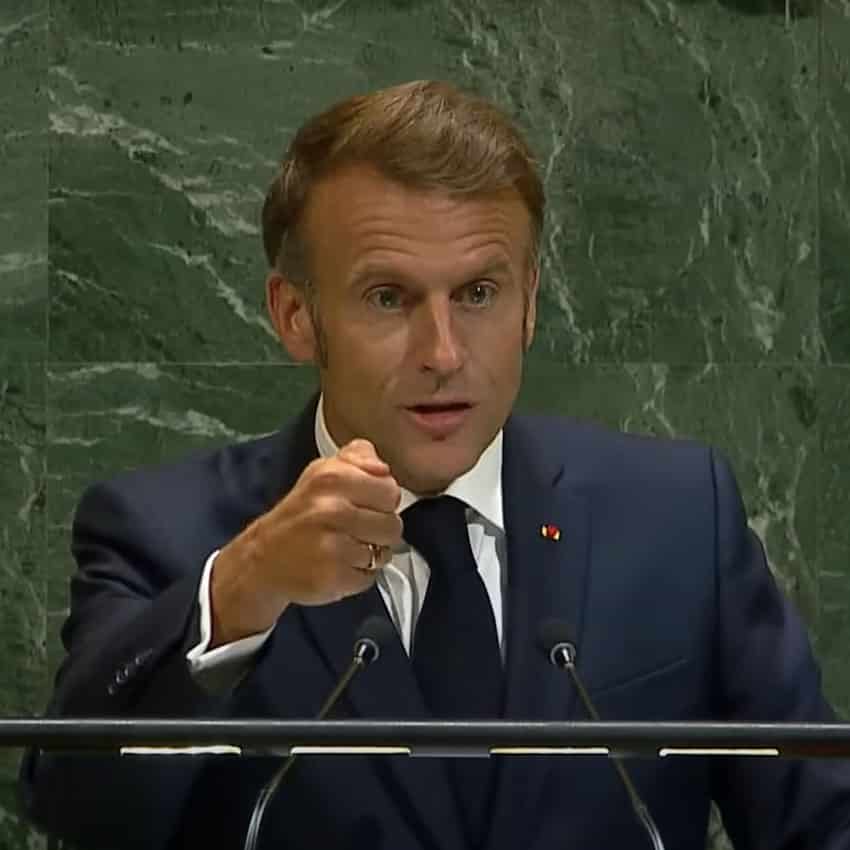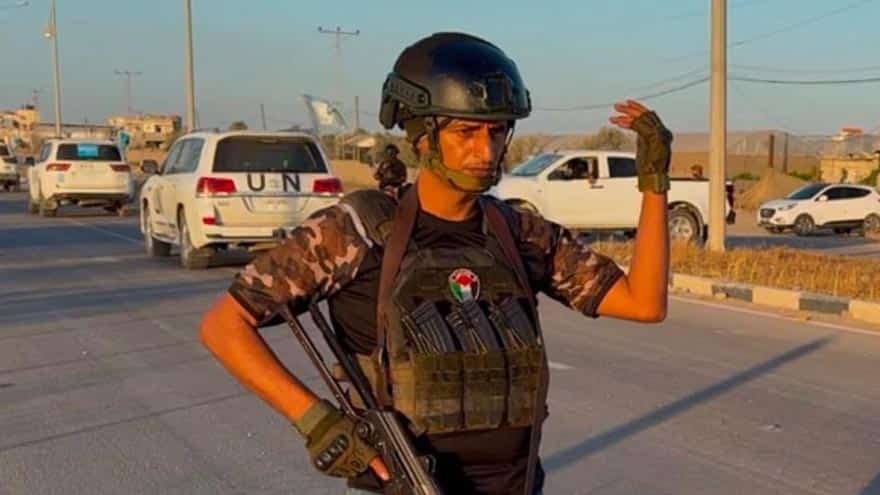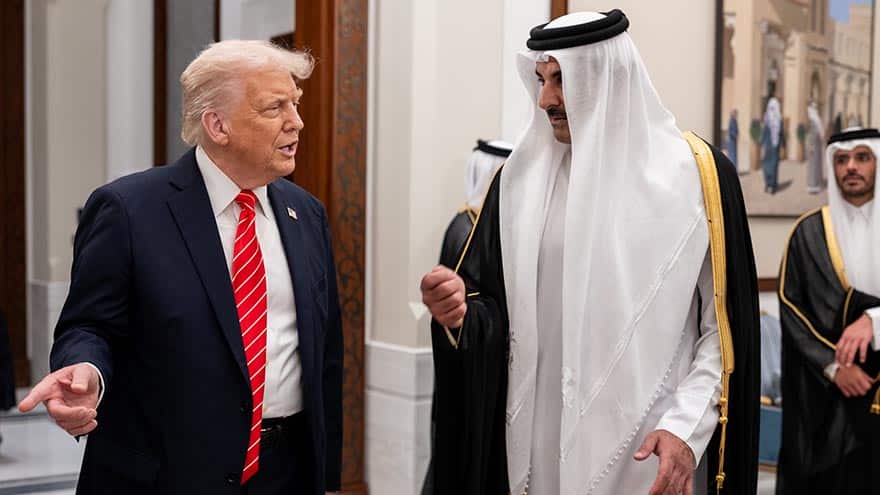In recent months, Israel has faced a tsunami of expanding international recognition of a Palestinian state, forcing it to confront a problematic, severe, and dangerous diplomatic-political challenge — one with critical existential implications. Unlike the many previous attempts to harm Israel and endanger its survival through wars and terrorist attacks since its establishment, today’s battlefield is not on the ground but instead in the air-conditioned halls of the United Nations.
At the center of the effort to advance recognition of a Palestinian state was the conference held at the UN on September 22 of this year, initiated jointly by France and Saudi Arabia, with the participation of numerous member states. In practice, the conference had originally been scheduled for June but was postponed due to Israel’s 12-day war against Iran. The two sponsors decided to hold it in two stages. The first took place on July 28 at the UN at the level of foreign ministers, during which the forum adopted the “New York Declaration,” referring to the advancement of the Israeli-Palestinian settlement process through a two-state solution, with “concrete, time-bound, and irreversible steps.”
The declaration adopted at that conference outlined a series of measures aimed at establishing a Palestinian state. It emphasized the need to end the war in Gaza, ensure Israel’s complete withdrawal, transfer responsibility to the Palestinian Authority, secure the release of Israeli hostages, deploy an international stabilization force in the Strip, and hold democratic elections under the Palestinian Authority without Hamas. It further stated that “the Gaza Strip is an inseparable part of the Palestinian state and must be united with the West Bank,” calling for the immediate establishment of a temporary management committee to operate in the Strip after the ceasefire under the auspices of the Palestinian Authority.
The declaration also called on Israel “to issue a clear and public commitment to the two-state solution… to halt settlement activity… and to stop settler violence.” The text further mentioned transferring UNRWA’s mandate to the Palestinian Authority in the interest of a “just solution” to the refugee issue.
On September 12, the “New York Declaration” was approved by an overwhelming majority of 142 member states in a session of the UN General Assembly. Ten countries opposed it, including the United States, and 12 abstained. Among European countries, nearly all expressed support, with Hungary as the sole opponent and the Czech Republic abstaining.
The World Warns Against Israeli Annexation as a Response
Following the French-Saudi conference held at the UN, the number of countries that have officially recognized a Palestinian state now stands at 153 — about 80 percent of the UN’s 193 member states. France, whose president Emmanuel Macron spearheaded the broad international initiative for recognition, was joined by Malta, Monaco, Luxembourg, and San Marino. Belgium and Andorra also declared formal recognition but attached conditions before it would take effect, such as the release of hostages, the removal and disarmament of Hamas, and reforms within the Palestinian Authority. Earlier, on September 20, the UK, Canada, Australia, and Portugal also announced recognition of a Palestinian state.
During the conference, the Dutch foreign minister declared that his country would recognize a Palestinian state as part of a political process that “must begin now.” Denmark stated that it would be ready to admit one after the release of Israeli hostages, once Hamas no longer played a political role in Gaza, and after the Palestinian Authority carried out the required reforms. Japan’s foreign minister said his country would respond if Israel “continues to take unilateral steps.”
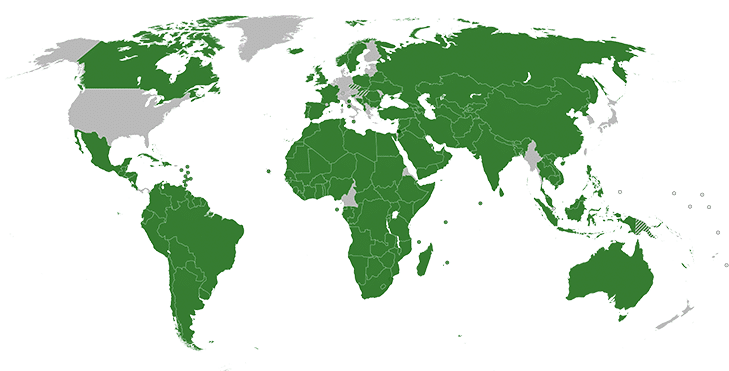
It is also important to note the European countries that did not join in recognition, including Italy, Hungary, the Czech Republic, and Finland. Argentina, led by President Javier Milei, who holds a strongly pro-Israel stance, opposed the recognition move, as did New Zealand.
In response to the wave of recognitions, unequivocal statements were heard in the international arena warning Israel against retaliatory measures such as annexing territory in Judea and Samaria. Such steps, it was stressed, would be seen as a provocation and would likely trigger concrete actions such as severed relations or Security Council resolutions against Israel. For example, on September 21, UK Foreign Secretary Yvette Cooper told the BBC ahead of the General Assembly session that she had conveyed a clear message to her Israeli counterparts “not to annex the West Bank,” emphasizing that recognition of a Palestinian state was “intended to ensure security for both Israelis and Palestinians.” She added that, for the time being, Britain would not declare its consulate in East Jerusalem as an official embassy to the Palestinian state, saying that “the next steps in the diplomatic process will be determined later.”
President Macron stated that “recognition of a Palestinian state is part of a broader move to stabilize the region, with the first step being a ceasefire between Israel and Hamas and the release of all hostages.” In an interview with CBS on September 21, Macron rejected the claim that recognition “rewards Hamas” and added that France was promoting “a security framework involving reconstituted Palestinian security forces and the assistance of an international force in Gaza under a UN mandate, with Israeli oversight and Hamas’ complete exclusion.” Macron also urged Israel to refrain from annexation in the West Bank, clarifying that recognition of a Palestinian state “will be conditioned on reforms in the Authority and commitment to Israel’s security.”
The German government spokesman joined the warnings to Israel, stating that “there must not be further annexation of Palestinian lands by Israel.” British Prime Minister Keir Starmer stressed in a recorded statement that his country “is working to keep the two-state solution alive” and seeks “a solution in which Israel is secure alongside a viable Palestinian state… right now we have neither.”
Starmer added that Britain had recognized the State of Israel 75 years ago, “as the homeland of the Jewish people. Today, we join over 150 countries in recognizing the State of Palestine.” He too emphasized that this should not be seen as rewarding Hamas, which “cannot have a future in governance.”
Qatar’s Emir, Tamim bin Hamad Al Thani, referred in his speech to the Israeli strike in Doha: “The entire world was appalled by Israel’s despicable act, which we classified as state terrorism. If releasing the hostages means ending the war, Israel’s government opposes it. Its goal is to destroy Gaza.” He further accused Netanyahu of “boasting about preventing the establishment of a Palestinian state and blocking peace now and in the future. Netanyahu dreams of turning the Arab region into an Israeli sphere of influence, and Arab and Muslim states have warned of the consequences of this delusion; anyone who opposes Israel’s propaganda is branded a terrorist or an antisemite.”
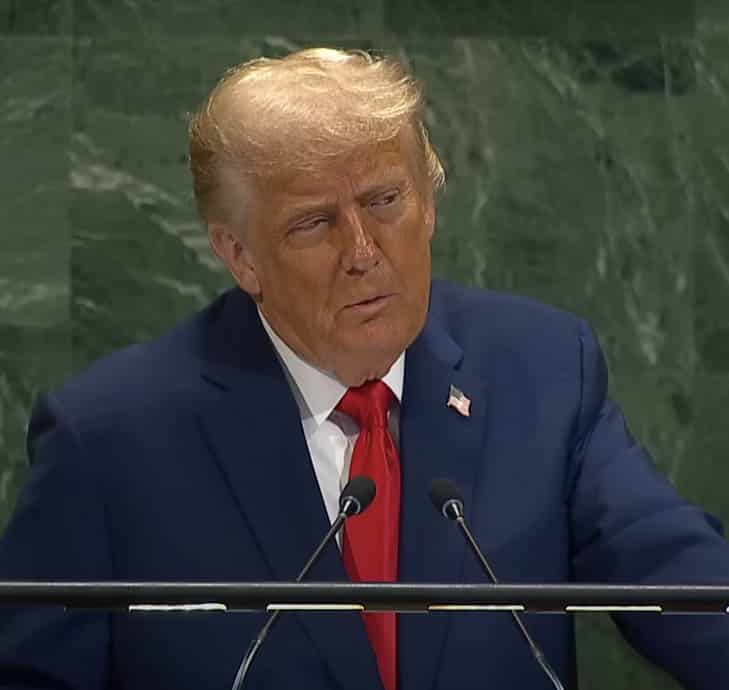
Abu Mazen Promises: We Will Implement Reforms in the Palestinian Authority
At the UN conference held before the opening of the General Assembly debates, several heads of state delivered speeches. President Macron clarified that “Mahmoud Abbas has committed to removing Hamas from power in Gaza and the West Bank,” stressing that France would only open an embassy in the Palestinian state after all Israeli hostages were released. He added: “We are on the verge of peace becoming unattainable, we cannot wait any longer… The Abraham Accords and Camp David agreements could be in danger due to Israel’s actions. The goal is for Israel and Palestine to live side by side.”
Spanish Prime Minister Pedro Sánchez stated at the conference that “Israel is committing genocide in Gaza, and history will judge those who stood by.” Canadian Prime Minister Mark Carney accused the Israeli government of “systematically working to prevent the establishment of a Palestinian state,” stressing that Canada recognizes the State of Palestine, which “is not a legitimization of terror but a strengthening of those seeking a peaceful solution.”
Palestinian Authority President Mahmoud Abbas addressed the conference via video, as his physical presence was prevented by the U.S. refusal to allow him entry. He called for an immediate ceasefire and the release of all hostages, emphasized that Hamas would have no role in Gaza’s future governance, and that administration in the Strip would rest with the Authority. He further clarified that the PA intends to carry out comprehensive reforms, including in the education system, which are expected to be completed within two years. Abbas also pledged to end the practice of paying stipends to families of prisoners held in Israeli jails.
President Abbas called on Israel to immediately return to the negotiating table “to achieve a just and sustainable peace,” affirmed that the PA recognizes Israel’s existence, and condemned the October 7 massacre. Egyptian Prime Minister Mostafa Madbouly stated in his speech that “security will not be achieved in Israel through military force or by imposing facts on the ground; the two-state solution is the guarantee for security. Once a ceasefire is reached in Gaza, Egypt will host the reconstruction conference.”
UN Secretary-General António Guterres pointed to the “intolerable” situation in Gaza and the effort to advance the two-state solution, “based on the 1967 borders with Jerusalem as a shared capital.” He stressed, however, that “nothing can justify the horrific October 7 attack and the kidnappings, but nothing can justify the terrible collective punishment and killings either.” According to him, “a Palestinian state is a right, not a reward.”
Turkish Prime Minister Recep Tayyip Erdoğan harshly criticized Israel, claiming that Netanyahu’s government “is trying to make the establishment of a Palestinian state impossible and force Palestinians into emigration… Netanyahu’s government controls a people who were once subjected to annihilation in the Holocaust and are now committing genocide against their neighbors.” Australian Prime Minister Anthony Albanese declared that “Hamas can have no role in Palestine.”
“An Absurd Reward for the Greatest Massacre of Jews Since the Holocaust”
Amid all the attacks against it, it was U.S. President Donald Trump who stood up to defend Israel in his speech at the UN General Assembly on September 23. Trump criticized Western governments that had announced recognition of a Palestinian state and warned them that by doing so, they were rewarding Hamas. He stressed that instead of “yielding to Hamas’ ransom demands, those who desire peace must unite around one message: release all the hostages now!”
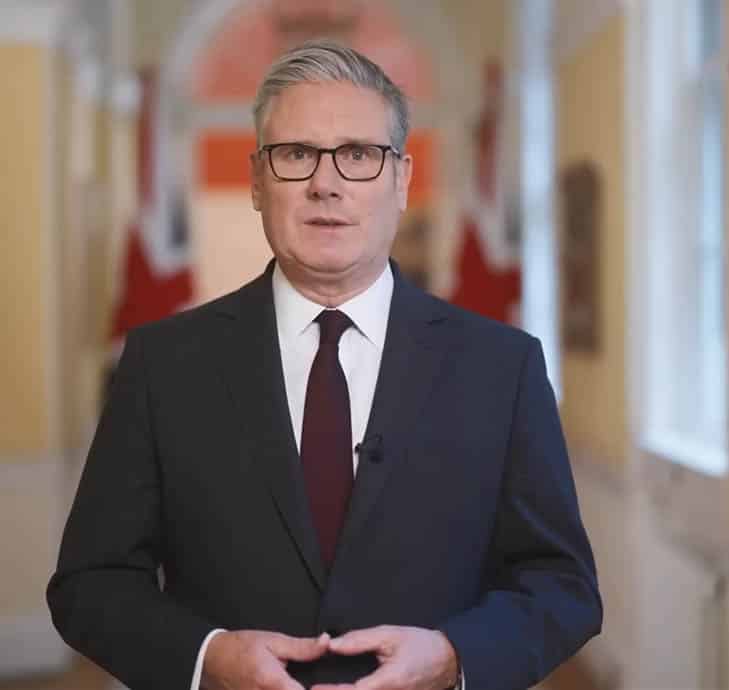
The Possible Response: Protest Measures, but Not Sovereignty
Reports in recent weeks in the Israeli media indicate that discussions have already taken place at the political level in Jerusalem regarding the appropriate way to respond to the international recognition of a Palestinian state. It is essential to emphasize that any action taken by the Israeli government in this regard will necessitate careful consideration of its potential implications and consequences before being implemented. This applies to possible scenarios of deteriorating relations with the Palestinian Authority, trends of escalation in the Israeli-Palestinian conflict, and tangible harm to Israel’s relations in the international arena, particularly with European states that have recognized a Palestinian state.
In a statement issued on September 21, Prime Minister Netanyahu announced that Israel would respond to the recognition of a Palestinian state after he visits the United States. He refrained from disclosing what Israel’s response would be, and its content would likely only be determined after he meets with the U.S. president, during which he is expected to coordinate the course of action and receive backing from Washington.
In his statement, Netanyahu declared: “I have a clear message to those leaders who recognize a Palestinian state after the terrible massacre of October 7 — you are granting a huge prize to terror.” He stated emphatically: “There will be no Palestinian state west of the Jordan,” explaining that for years he has prevented the establishment of a “Palestinian terror state despite immense pressures, both internal and external… we have doubled Jewish settlement in Judea and Samaria, and we will continue on this path.”
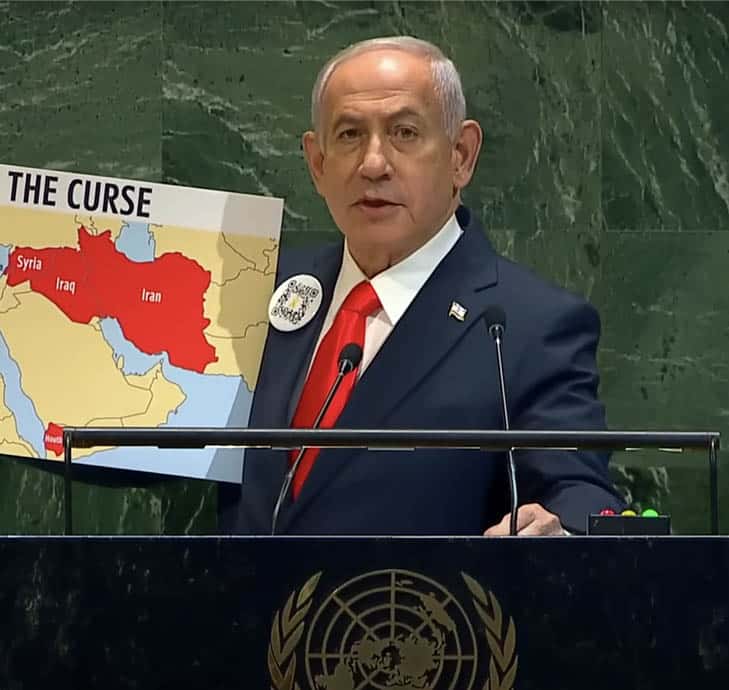
Netanyahu made similar comments in his address to the UN General Assembly, where he claimed that Western leaders had succumbed to the pressure of a “biased” international media and of “Muslim voters” in their countries, accusing them of awarding a prize to “the worst antisemites on earth.” Netanyahu reiterated unequivocally that Israel would not allow the establishment of a Palestinian state, describing it as an existential threat: “This is madness, national suicide,” he declared.
In its first official response, the Israeli Foreign Ministry categorically rejected recognition of a Palestinian state. It accused Western leaders of cynically aligning with the Palestinians for reasons of “domestic politics.” The statement read: “Political gestures aimed at internal electorates harm the Middle East and are unhelpful. Instead, if the countries that signed this declaration truly seek to stabilize the region, they should focus on pressuring Hamas to release all the hostages and disarm immediately.”
The statement further clarified that such recognition amounted to “an absurd reward for the greatest massacre of Jews since the Holocaust… it does not promote peace, but on the contrary — it further destabilizes the region and undermines prospects for a future peace agreement.”
Israel also rejected what it described as a “diplomatic upheaval” in which recognition is demanded from Israel before negotiations. Taking the concept of a Palestinian state out of the framework of peace, the statement argued, is a destructive step, contrary to any logic of negotiation and compromise, and would only push peace further away.
Beyond Hamas, the statement also strongly criticized the Palestinian Authority for its consistent policies against Israel: “The Authority has not met a single one of its obligations — it has not stopped incitement, it has not ended the transfer of salaries to terrorists, and it has not taken the required steps to combat terror.” Israel therefore emphasized that it would not accept “any disconnected, imaginary text that seeks to impose indefensible borders upon it.”
Israel faces a broad range of possible courses of action in response to the recognition of a Palestinian state. Israel will likely avoid pursuing a move to apply full and immediate sovereignty over the entire area of Judea and Samaria, as well as preventing unilateral steps such as annulling the Oslo Accords and dismantling the Palestinian Authority established under them. Such a course of action would not find support from President Trump, who would almost certainly veto it. Evidence of this can be found in the U.S. president’s remarks on September 25, in which he told reporters at the White House that he would not allow Israel to annex Judea and Samaria. On the same day, French President Macron said in an interview with the British Guardian that any Israeli annexation of the West Bank “would be the end of the Abraham Accords.” It firmly assessed that “this would be a red line for the United States.”
Furthermore, it is highly probable that if Israel were to decide to promote annexation moves in Judea and Samaria, such actions would endanger its peace treaties with Egypt and Jordan, collapse the Abraham Accords — normalization with the UAE — and neutralize any possibility of advancing an arrangement with Saudi Arabia.
The Israeli leadership is also examining the possibility of more limited responses, such as extending Israeli sovereignty to the Jordan Valley and Area C in Judea and Samaria, or transferring parts of Area B into Area C status — that is, under complete Israeli civil and military control, thereby canceling Palestinian civilian authority in those areas. Another option on the table is annexing the major settlement blocs in Judea and Samaria. It is unclear how such moves, if implemented, would be received by the U.S. administration and by the moderate, pragmatic Arab camp — particularly Egypt, Saudi Arabia, Jordan, and the UAE. Israel could justify them on the grounds of heavy security imperatives concerning the need to protect and secure the hundreds of thousands of Israelis living in the settlements.
It is also reasonable to assume that Israel is considering concrete protest measures against countries that recognized a Palestinian state. Within this framework, Israel could revoke entry visas to Ramallah for diplomats from these countries, close their consulates in Jerusalem, especially that of France, which spearheaded the recognition initiative. France, in turn, would likely not remain silent and would respond with punitive steps against Israel.
In light of the protracted campaign against Hamas in Gaza and the return of the Palestinian issue to the forefront of the international agenda, France, in a joint initiative with Saudi Arabia, seized the current timing as an opportunity to actively advance its support for the vision of a Palestinian state. However, the accession of additional countries to the 144 that had already recognized a Palestinian state in the past is, at present, of no practical significance — at least as long as Israel opposes the move and positions itself as an impenetrable barrier to its realization. At the same time, the fact that among the supporting states are Western powers such as France and the UK, both permanent members of the Security Council, magnifies the challenge Israel faces and further sharpens the isolation into which it has been drawn in the international arena.
